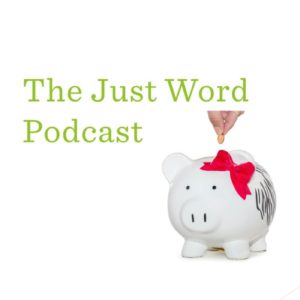
Veteran broadcaster Pat Bolland interviews me on his new podcast: The Just Word with Pat Bolland.
You can find the full interview — which dropped early Tuesday — here. The episode is titled “Findependence or Bust.” Scroll down a tad if you can’t see it immediately on your screen. It’s audio-only (at least this particular segment) and if it appears to pause on a mobile device, simply press the Play button again and it will resume where it left off.
You can find the podcast on the usual distribution outlets, including Spotify, Apple, Google and others.
I’ve followed Pat’s career in broadcasting and investing for decades and for a time we worked as editor (me) and columnist (Pat) during my stint at MoneySense magazine. Pat was my go-to-source for Fixed Income, although of course he’s extremely knowledgeable about all asset classes.
The interview is a wide-ranging one over Zoom, spanning about 25 minutes, with a particular focus on this website: The Financial Independence Hub. Pat probes me about why and how the site got started, about its demographics and audience and we discuss the difference between traditional Retirement and the concept of Financial Independence (aka Findependence) and the idea of the Financial Life Cycle.
As the title of the segment suggests, he fully fleshes out the word Findependence, including my self-appointed title of CFO, standing uniquely for Chief Findependence Officer.
We address the difference between Wealth Accumulation and so-called “Decumulation,” and discuss a few Canadian authors of books that focus on the topic, or Retirement in general.
Our respective forays into Cryptocurrencies
Of course, we also covered a lot of ground about investing in general, ranging from cryptocurrencies and Bitcoin and gold/precious metals to robo-advisors and investing in a post-Covid world where vaccines are becoming common enough that investors can start to think about so-called “Recovery” plays.
We chat about what seems to have been the shortest bear market in history (March 2020) and the subsequent volatile markets. I was surprised to discover Pat was an early adopter of Bitcoin, albeit a tiny amount several years ago, which he ultimately bought a set of golf clubs with.
We then moved on to zero-commission trading, young investors trading on Robinhood, and the recent phenomenon of the short squeeze on GameStop and other popular meme stocks promoted on Reddit’s WallStreetBets forum.
Housing, investment real estate and REITs
We also discuss interest rates and housing, debt and financial repression, life expectancy and longevity, and what aging baby boomers like ourselves can expect in Semi-Retirement and (one day!) Full Retirement. We walk about Toronto housing prices and my long-term philosophy that the foundation of Findependence is a paid-for home (articulated in my financial novel, Findependence Day.)
We also address investment real estate and — for those who don’t wish to be a landlord — REITs (Real Estate Investment Trusts) or REIT ETFs.
What I’d tell my 35-year old self
Watch near the end for Pat’s question to me about what I’d tell my 35-year-old self if I could go back in time and do it all over again.
Hint: Pat thought my answer was “facetious!”






